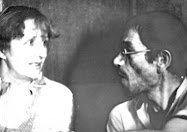 Microsoft CEO: Computers will figure you out
Microsoft CEO: Computers will figure you outThe next focus of research, Ballmer tells Charlotte audience, is machines that intuit what user wants.
By Andrew Dunn
http://www.charlotteobserver.com/
In the next 10 years, computers as flexible as a sheet of paper will replace notepads and newspapers, while others will be able to intuit what you're trying to find online, Microsoft CEO Steve Ballmer said Friday to a group of Charlotte technology workers.
Ballmer's speech and question-and-answer session kicked off the N.C. Technology Association conference in uptown Charlotte. He discussed topics including health care costs and the future of Microsoft's new search engine, Bing.
“Nothing ever slows down,” he said, highlighting the need for research and development even in a down economy. “There continues to be amazing change, and it's not just in the new things you see and read.”
In 1999, fewer than half of households had desktop computers or cell phones, which are now ubiquitous. The next 10 years, Ballmer said, should see even more rapid changes.
He said a big part of the future of computing is in determining users' intent. For example, he said it's simple to ask his assistant to get him ready to visit Charlotte. But on a computer, it involves opening up his calendar, visiting several Web sites, printing out tickets, and so on. The two will become more similar, Ballmer said.
When you type the word “Chicago” into a search engine, it will be able to determine whether you meant the city, the band or the musical based on your Internet history.
Another part of the future is the development of a more natural interface. Users will be able to speak to, touch and gesture at their computers even more.
But Ballmer's central theme was on the role of information technology in the nation's economic recovery. He said that about half of today's Fortune 500 companies were launched during a recession, and that companies can help themselves and the country out of its funk through research, development and innovation.
“There is an unnatural opportunity and responsibility to help drive the productivity and innovation that can let the economy come back and grow again,” Ballmer said. “It is a tough time, but it is a time for those of us in the technology industry to say, ‘Hey, it's our time. It's our time to do something great.'”
The N.C. Technology Association, chaired this year by Charlotte-based Peak 10's David Jones, is an industry group that regularly holds conferences, hosts speakers and collects data.
The conference marked Ballmer's first visit to Charlotte in five years. Microsoft has about 1,200 employees in Charlotte and 200 near Raleigh. He mentioned that neither location would grow in the near future, but that no major cutbacks were planned.
Advice for Obama
When asked what advice he would give to President Obama in regard to cyber security, Ballmer hesitated. “How do I say this the right way?” he said. “I'm not in the habit of doing advice to presidents.”
The president needs to use his “bully pulpit” to make sure businesses and local governments are protecting their data, Ballmer said. He said information technology departments' vigilance has trended down over the past few years, but said regulatory enforcement would be unnecessary.
Obama also needs to make the federal government's cyber security an example, Ballmer said.
The qualities of a leader
A good manager must keep an open mind and try to anticipate where things are going, Ballmer said, when asked how big companies can continue to innovate.
He also said the manager must be urgent but patient, which he acknowledged as conflicting on its face.
“You have to move with urgency and you have to be impatient about outcomes, but you have to be committed and patient for the long term,” he said. “Be quick but don't rush.”
In the next 10 years, computers as flexible as a sheet of paper will replace notepads and newspapers, while others will be able to intuit what you're trying to find online, Microsoft CEO Steve Ballmer said Friday to a group of Charlotte technology workers.
Ballmer's speech and question-and-answer session kicked off the N.C. Technology Association conference in uptown Charlotte. He discussed topics including health care costs and the future of Microsoft's new search engine, Bing.
“Nothing ever slows down,” he said, highlighting the need for research and development even in a down economy. “There continues to be amazing change, and it's not just in the new things you see and read.”
In 1999, fewer than half of households had desktop computers or cell phones, which are now ubiquitous. The next 10 years, Ballmer said, should see even more rapid changes.
He said a big part of the future of computing is in determining users' intent. For example, he said it's simple to ask his assistant to get him ready to visit Charlotte. But on a computer, it involves opening up his calendar, visiting several Web sites, printing out tickets, and so on. The two will become more similar, Ballmer said.
When you type the word “Chicago” into a search engine, it will be able to determine whether you meant the city, the band or the musical based on your Internet history.
Another part of the future is the development of a more natural interface. Users will be able to speak to, touch and gesture at their computers even more.
But Ballmer's central theme was on the role of information technology in the nation's economic recovery. He said that about half of today's Fortune 500 companies were launched during a recession, and that companies can help themselves and the country out of its funk through research, development and innovation.
“There is an unnatural opportunity and responsibility to help drive the productivity and innovation that can let the economy come back and grow again,” Ballmer said. “It is a tough time, but it is a time for those of us in the technology industry to say, ‘Hey, it's our time. It's our time to do something great.'”
The N.C. Technology Association, chaired this year by Charlotte-based Peak 10's David Jones, is an industry group that regularly holds conferences, hosts speakers and collects data.
The conference marked Ballmer's first visit to Charlotte in five years. Microsoft has about 1,200 employees in Charlotte and 200 near Raleigh. He mentioned that neither location would grow in the near future, but that no major cutbacks were planned.
Advice for Obama
When asked what advice he would give to President Obama in regard to cyber security, Ballmer hesitated. “How do I say this the right way?” he said. “I'm not in the habit of doing advice to presidents.”
The president needs to use his “bully pulpit” to make sure businesses and local governments are protecting their data, Ballmer said. He said information technology departments' vigilance has trended down over the past few years, but said regulatory enforcement would be unnecessary.
Obama also needs to make the federal government's cyber security an example, Ballmer said.
The qualities of a leader
A good manager must keep an open mind and try to anticipate where things are going, Ballmer said, when asked how big companies can continue to innovate.
He also said the manager must be urgent but patient, which he acknowledged as conflicting on its face.
“You have to move with urgency and you have to be impatient about outcomes, but you have to be committed and patient for the long term,” he said. “Be quick but don't rush.”




























































No comments:
Post a Comment